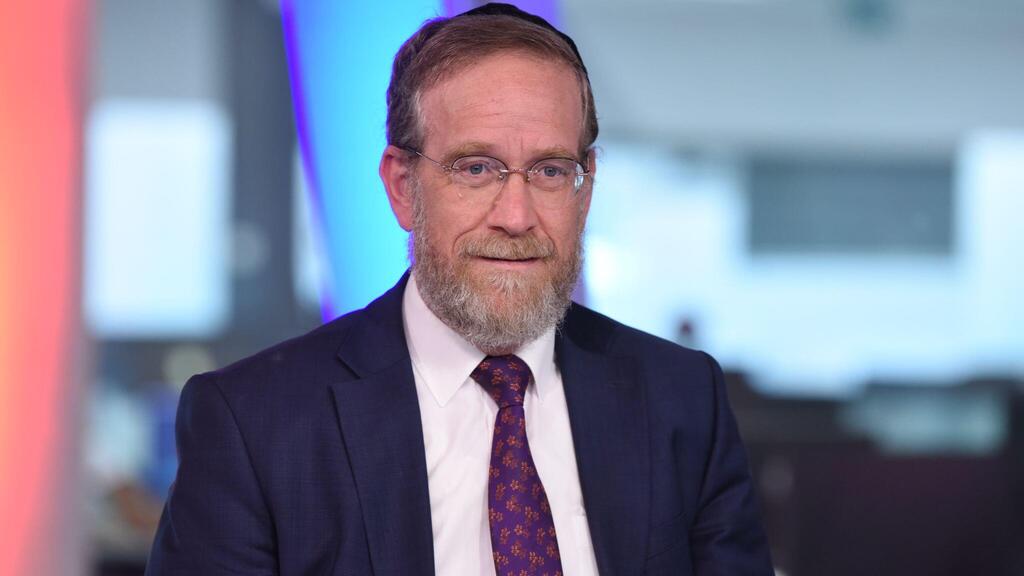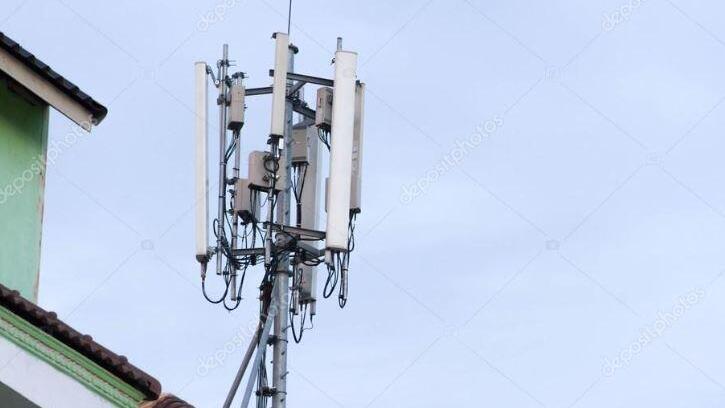Getting your Trinity Audio player ready...
The Likud and the ultra-Orthodox United Torah Judaism parties signed a coalition agreement on Wednesday morning, a day before the new Israeli government was to be sworn in.
The deal between the two parties, which reflects several demands for legislation by United Torah Judaism (UTJ) in exchange for joining the government, includes a clause that could halt advances for Israel’s communication infrastructure and and its technological development.
One piece of legislation demanded by the ultra-Orthodox party would halt the Communications Ministry's program to completely phase out 2G and 3G cellular networks gradually, leading up to a total shutdown in 2025, in order to install the more advanced 5G network.
The ultra-Orthodox, or Haredi community is interested in keeping 2G and 3G connectivity systems in place because most of the so-called “kosher” phones – which do not have internet or social media capabilities to prevent the user from seeing forbidden websites or videos – are usually old models, that only run on these networks.
Yitzhak Pindrus, chairman of the United Torah Judaism Knesset faction, said that having kosher phones available to their community is an important matter for the Haredi leadership.
“Having phones that are only for picking up and calling, instead of having access to the Internet and all the rest, is very important for us, for our homes, for our education, and that’s why we’ll do anything for that to happen,” he said.
He explains that today there are several thousand members of the ultra-Orthodox community in Israel who have phones only for talking, “and we want to keep it that way.”
Israeli media cited an unnamed official in the Communications Ministry who said that canceling the plan to phase out 2G and 3G frequencies will prevent the technological development of communications in Israel. The Media Line reached out to the ministry, which declined to comment until the new government is in place.
But outgoing Communications Minister Yoaz Hendel tweeted this week that: “Within the coalition agreements I discovered today a clause that is going to cause enormous economic and security damage to the State of Israel. Stopping the transition to generation 4 and 5 and returning to generation 2 and 3. It’s like trying to go back to the horse and chariot in the world of frequencies. It’s a hallucination.”
“Whoever wrote this clause was drunk,” Hendel said Monday during an interview with Radio 103 FM.
Professor Chaim Noy, chair of the School of Communication at Bar-Ilan University, said that, in the long run, it will affect the entire communication infrastructure in the country.
He adds that technology, and specifically communication technology, is always political. “The political aspect of media and communication surfaces here,” he told The Media Line.
Noy notes that modernity is commonly thought of as advancement, progression and as something positive. But, he adds, it is important to clarify that this is not true for everyone and not in all respects.
Today’s mobile phones have visual features that could expose the users to corrupt content, he explains, adding that this could be the case for both Haredi and non-Haredi users.
Pindrus described this content as a “trap” for people and compared its availability in the phones to hypothetically “selling drugs in every other store.”
The Haredim, Noy said, “try to block this, and it is a moral, religious and ethical issue for them.” He adds that the ultra-Orthodox leadership is naturally using their political power to advance their political agenda, just as all other parties are doing. “That is the name of the game, and they understand the political game in Israel very well,” he said.
Noy says that if a small group in a country’s population, for whatever reasons, is blocking some kind of communication change, “of course, it will affect the entire population. It is a question of the benefit of the majority,” he said.
But Pindrus says that the UTJ considers more advanced cell phones to be negative for their educational values and says that they are willing to do anything to avoid the older models becoming obsolete, even if it means holding back the entire country from developing its communication infrastructure.
At the end of the day, he said, “the education of our children is something that we are willing to pay a high price for. And yes, we think it’s bad for our kids to be open to anything like that.”
Pindrus accused the outgoing Israeli government of acting to deliberately prevent Haredim from using their kosher phones.
“The previous government that’s leaving us hopefully tomorrow was trying through all kinds of ways to stop us from using those phones. That is something that we disagreed with,” he said.
For example, the ministry moved to allow phone number mobility, which would allow a kosher phone user to switch to a smartphone without his community knowing.
During the Israel Democracy Institute 2022 Annual Conference of the Ultra-Orthodox Society in Israel on Wednesday, Pindrus said that, in general, the large number of requests coming from the UTJ in the coalition agreements add up to a single goal, which is to maintain the current situation, known as the status quo, and avoid any change in the relations between the religious establishment and the state.
Ashley Perry, a strategic consultant and a former senior adviser to Israeli government ministers, said that in the Israeli political system’s extreme form of proportional representation, “smaller parties in government have a lot of demands and they are invariably met.”
He adds that the ultra-Orthodox parties have plenty of demands, especially now after being out of the government for nearly two years. “They have seen a lot of things that they perceive to be an attack on their community or against the interests of their community being enacted,” he said.
“They definitely want to try and get as much in as possible and even make some gains, which they hope to do irreversibly,” he also said.
The story was reprinted with permission from The Media Line





